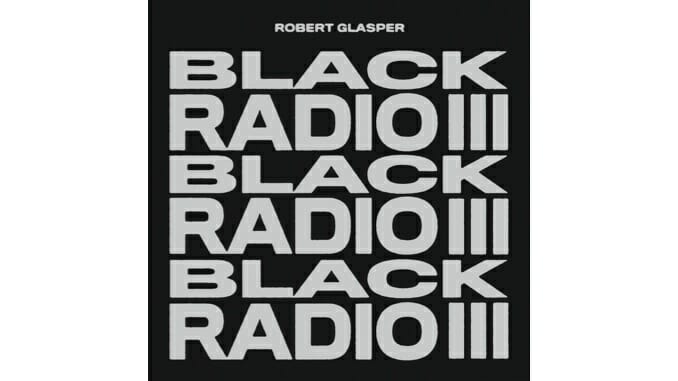With Black Radio III, Robert Glasper Continues to Expand His Sonic Universe
Ten years after breaking barriers with Black Radio, Glasper’s vision of jazz, hip-hop and R&B as mutually sustaining forms remains as vital and promising as ever

In the liner notes for the third installment of pianist Robert Glasper’s Black Radio series, Glasper’s thank-you list consists of a single line: “Thanks to the Universe”—a somewhat odd choice from a musician who’s fostered such a communal spirit over a career that reads like an endless list of musical get-togethers. Like so many of his previous efforts, the sheer number, caliber and range of guests who appear on Black Radio III just jumps off the page, enticing listeners to imagine what each successive musical pile-up is going to sound like. Even Glasper’s dad remarks about all the collaborations during one of the album’s interludes, referring to his son’s creative workspace as “the lab.”
Hip-hop lovers accustomed to seeing features on every tracklist might not be as impressed as Pops, but Glasper curates his albums almost as if he were putting together a festival lineup—the kind where you’re able to hear faint traces of music coming from another stage off in the distance. Here, though, the disparate elements tend to align, and it should come as no surprise to fans that Black Radio III epitomizes Glasper’s knack for coaxing fireworks out of other musicians while keeping the mood supremely laid-back.
Eight of the 13 tracks feature multiple guests—including India.Arie, Q-Tip, Meshell Ndegeocello, Esperanza Spalding, Common and Ty Dolla $ign, to name just a few—seemingly mashed together, as if Glasper loves to push contrast to the point where he flirts with, but never quite allows things to tip over into chaos. The staccato, machine gun-like phrasing of Run The Jewels mouthpiece and outspoken social critic Killer Mike, for example, slots right in next to the silky-smooth croon of BJ The Chicago Kid on “Black Superhero,” the latest feature to showcase Glasper’s long-running love for neo soul and its modern-day offshoots.
To be fair, rappers have been doing features alongside R&B artists (and vice-versa) for decades, so “Black Superhero” isn’t exactly a radical innovation. That said, Glasper certainly deserves credit for making his guests look like natural dance partners. In his element—even without any music, like when he’s just riffing about politics on TV—it’s practically impossible for Killer Mike to avoid pumping the listener’s adrenaline into the red. That Glasper manages the musical equivalent of placing a bomb on a pillow—without diminishing the song’s message about everyday survival in the hood as a heroic, even godlike act—is no small feat indeed.
Conversely, Black Radio III kicks into high gear with the organ-driven “Why We Speak,” which pairs polyglot jazz bassist and singer Esperanza Spalding alongside A Tribe Called Quest leader Q-Tip. Remarkably, Glasper doesn’t actually increase the tempo or attack, and yet the energy level takes off as Spalding and Q-Tip call and respond in a stirring mishmosh of Spanish, French and English. Spalding’s chopped-up backing vocals give the song a semi-automated temperament that’s oddly enlivening (along the same lines as Janelle Monae’s playful robot persona), while Q-Tip showcases a flair for melody that most of his fans probably didn’t even know he had—two prime examples of Glasper’s gift for bringing out the unexpected in people.
Between his 2004 debut album Mood and his fourth album, 2009’s Double Booked, Glasper’s work hinted at a vision of music where the refined airs of traditional jazz could fuse seamlessly with the street sensibility of hip-hop. Double Booked, in fact, opens with jazz trumpeter and frequent Spike Lee film composer Terence Blanchard name-checking Roots drummer Questlove. Of course, Glasper was by no means the first to bring those worlds together—hip-hop figures like Q-Tip, Gang Starr’s Guru and Questlove had long laid the foundation, all of them instrumental in bringing an awareness of jazz to a whole new generation of listeners. But if Glasper wasn’t in on the ground floor of that sea change, his involvement predates his own crossover success, having played with the likes of Bilal, Erykah Badu, The Roots, J Dilla and Common in the late ‘90s. (Quick primers on his history here and here.)
-

-

-

-

-

-

-

-

-

-

-

-

-

-

-

-

-

-

-

-

-

-

-

-

-

-

-

-

-

-

-

-

-

-

-

-

-

-

-

-








































